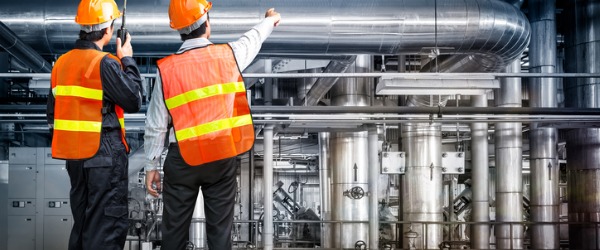What is a Water Engineer?
A water engineer is someone who deals with the provision of clean water, disposal of waste water and sewage, and the prevention of flood damage. Their job involves repairing, maintaining and building structures that control water resources (for example, sea defence walls, pumping stations and reservoirs). Global warming, ageing infrastructure, population growth, and higher quality living standards are just some of the challenges a water engineer has to address.
What does a Water Engineer do?

Water engineers have many responsibilities, both technical and non-technical. They ensure that citizens are provided with a continuous supply of clean, uncontaminated water for drinking, living, and recreational purposes. Water engineers not only design water management systems, but often oversee the construction and maintenance of these systems as well. They demonstrate a genuine knowledge and interest of the water industry and environmental issues.
Responsibilities involve:
- designing sewer improvement plans or flood defence programmes, and associated structures, such as pumping stations, pipework and earthworks (the scale may range from an initial outline to a full, detailed design)
- preparing tender documents for construction
- reviewing technical submissions
- liaising with various agencies and individuals, including local authorities, government agencies, clients, contractors, residents, suppliers, technical experts, and consultants
- working together with other businesses
- supporting other project managers and directors within the business and in the market
- keeping up to date with environmental matters; being aware of policy and developments
- presenting technical data or project results; both technical and non-technical
- keeping track of the progress of projects from beginning to end - from feasibility, to design through to construction and handover (or handling just one section of a large project)
- controlling budgets at the project level
- ensuring that work is completed to a deadline
- supervising the operation and maintenance of water and sewage infrastructure
- using computer simulations to analyze, for example, potential dam failure
- devising flood defence strategies
- monitoring flood levels at times of high risk
- managing staff, including other engineers, technicians and site workers
- maintaining and expanding clientele, by developing professional relationships that lead to secure repeat business
Key skills for water engineers are:
- Excellent analytical skills
- Team-working skills
- Problem solving skills
- Good time management
- IT skills
- Communication skills
What is the workplace of a Water Engineer like?
Typical employers of water engineers are privately owned water companies, regulatory bodies, the environment agency, local authority environmental health departments, private consultants or contractors, and charities.
Water engineers spend most of their time in an office looking over data and designing new water resource management systems. However, part of their day may be spent at construction sites, overseeing the construction of their designs. They may also go to more industrial environments when supervising maintenance on advanced equipment. Most work full-time, sometimes putting in more than 40 hours a week in order to properly oversee projects and assure that everything is running smoothly.
Water Engineers are also known as:
Water and Waste Engineer
Water and Sewer Engineer
Water Resources Engineer
Wastewater Engineer
Water Resource Engineer